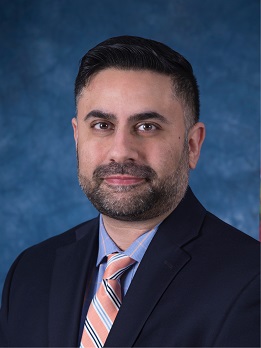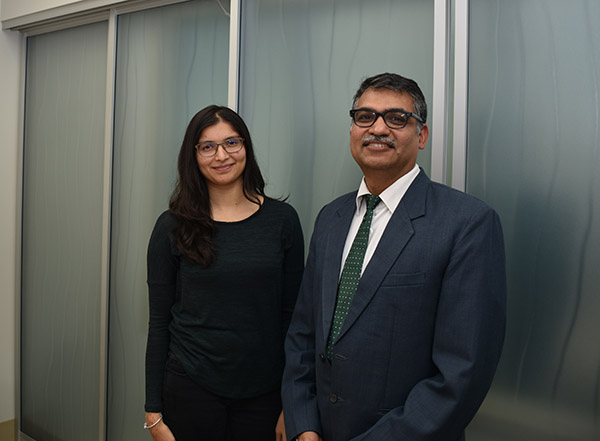

A team of researchers from Lawson Health Research Institute is conducting a study to examine the benefits of a program using a combination of social-emotional learning skills and breathing techniques for youth at risk of homelessness.
Many youth across Canada are at risk of becoming homeless and about 20 percent of the homeless population cross the country is youth ages 13-24. Evidence suggests that children and youth who have experienced four or more adverse childhood experiences are less likely to be integrated within the community and are at a higher risk of drug use and homelessness.

At-risk youth have difficulty accessing mental health and social services due to many factors such as stigma and lack of transportation. There are support services available in London including Youth Opportunities Unlimited (YOU) and other similar community organizations, but there may be a role for additional interventions.
“While it is difficult to change at a system level, it is possible to increase resiliency in these youth to reverse negative outcomes,” explains Dr. Akshya Vasudev, Psychiatrist and Lawson Associate Scientist.
The Youth Empowerment Seminar (YES!), created and taught by the Art of Living Foundation, has been developed for youth to learn skills for stress management, emotion regulation and conflict resolution. “In America, there has been good success from using this program with high school kids. We want to see if this same program could improve resiliency in those considered to be at-risk of homelessness in this region, and lead to improved long-term outcomes such as reintegrating back into the community, reducing drug use and avoiding homelessness,” says Dr. Vasudev.
The research team is looking for about 60 at-risk youth ages 16-25 to enroll in the study and complete the program. They hope this initial pilot study will provide vital information and signal the need for a larger controlled study looking at the feasibility and benefits of this intervention.
“Youth in this transitional age group are one of the most vulnerable members of society, especially if they’ve had adverse childhood experiences” says Dr. Sukhera.
“They might not have the emotional skills to do things like hold down a job or manage conflict in relationships, and develop habits that result in negative outcomes. Learning life skills in a way that is tailored to them in a safe, confidential and supportive environment could make a big difference.”
Meera Sharma, a student at McMaster University in Hamilton, Ontario completed the YES! training for the first time when she was 13 years old.
“A lot of youth feel quite disoriented. There is so much pressure on young people as they are trying to figure out where they are going and what they are doing with their life,” explains Meera. “When I go back to my teenage years, I felt like I was under a lot of stress. And sometimes we do kids a disservice by making them feel like they are young and don’t have the same level of stress as those older than them.”
She remembers the learning environment of the program being peaceful and calming, as well as welcoming and appealing for youth. “Sometimes, I just went because my friends were going! I liked being there and I felt comfortable.” The unique approach to teaching kills also resonated with a lot of other people her age. “If your parents yell at you and tell you to do something, you might know you should but you have that rebel instinct as a teenager. This program was different and helped many of us get on the right path.”

Meera Sharma with Dr. Akshya Vasudev. Meera is not a participant of the current study but has previously taken YES! several times as a young person.
There are two major components to YES! training that can be implemented into everyday life: social-emotional learning (SEL) skills and breathing techniques for energy and stress management referred to as Sudarshan Kriya Yoga (SKY).
SEL skills help people understand and manage their emotions, build successful relationships, and deal with life stressors in a positive and constructive way. Through games, activities and interactive discussions, YES! is designed to strengthen skills in the areas of self-management, self-awareness, social awareness, relationship skills and responsible decision-making.
SKY refers to a collection of 3 breathing techniques that have been taught by certified instructors from the Art of Living Foundation to over 5,000,000 people around the world. SKY breathing has been shown to improve mood, mental focus and wellbeing. It also boosts immune, hormone and cardiovascular system functioning. The yoga used in the program is simple helps to both calm excess energy and allow the youth to centre themselves.
Meera explains that the program uses a lot of games and other activities that connect with youth. “It makes it a lot more fun and a little more digestible for people that age. Then, you could say, there are really important tidbits of takeaway knowledge that can support you in living your life to its full potential."
"You can’t just tell young people something. The program is effective because it brings people together for discussions and interactive experiences. Then once you start using those skills, you gain a much better understanding of it and can apply it in different ways.”
Meera has repeated the program several times over the years. “It really helped me to settle down. It gave me a path that I could tread on without fear.”
Dr. Vasudev adds that “we want to empower youth so that they can use these skills while harnessing their own abilities. The program can ignite their self-confidence and help them get out of the rut of negative thinking, anxious living, lack of good quality sleep, and use of alcohol and other substances. They are learning skills to face the challenges of life.”